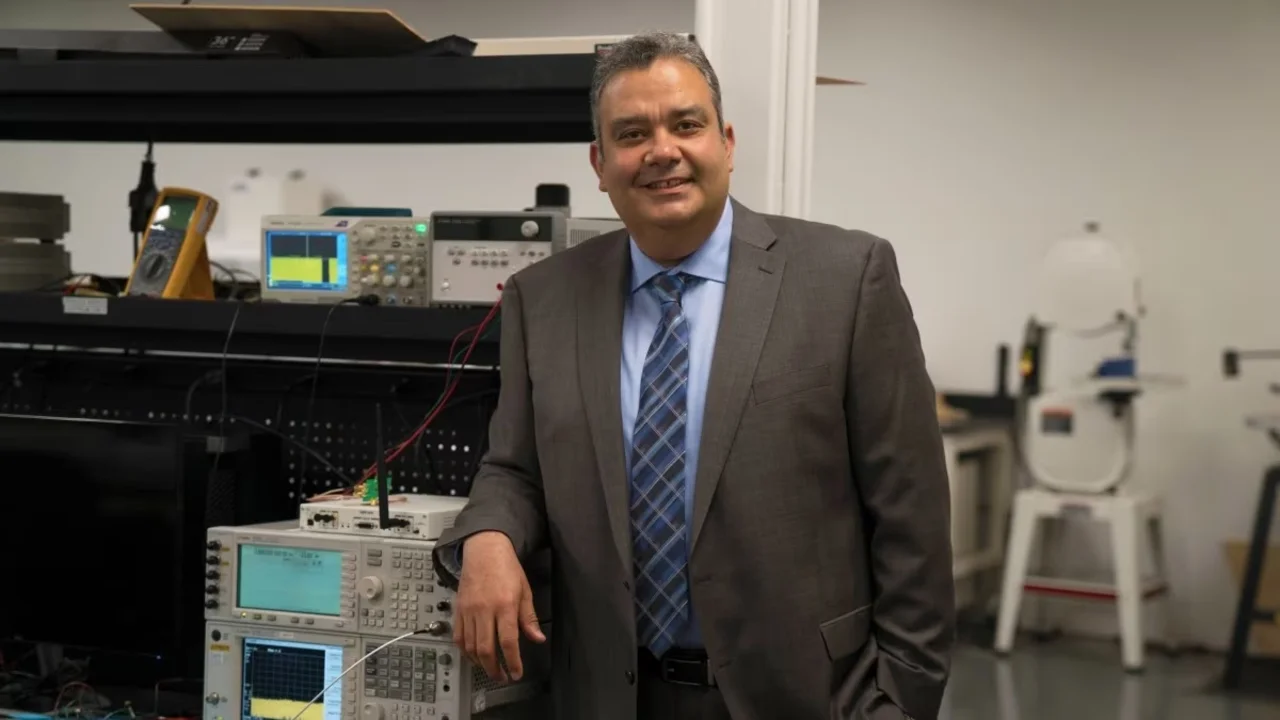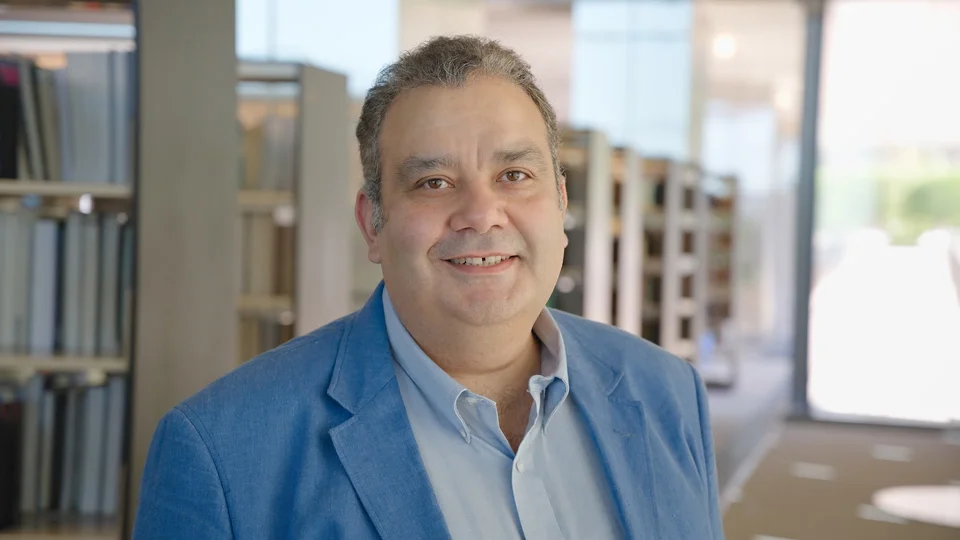
CEMSE New Faculty: Ahmed Eltawil, Professor, Electrical Engineering
Professor of Electrical Engineering, Ahmed Eltawil, recently joined the KAUST CEMSE Division from the University of California (UCI), Irvine, where he had worked for 14 years prior. At UCI, Eltawil worked in the Department of Electrical Engineering and Computer Science and was also the founder and director of the university’s Wireless Systems and Circuits Laboratory. As an expert in system integration for wireless systems, he joins KAUST with an established pedigree of university-industry collaboration, and he continues to act as an advisor in the development of wireless systems for leading international companies.
About
By David Murphy
Professor of Electrical Engineering, Ahmed Eltawil, recently joined the KAUST CEMSE Division from the University of California (UCI), Irvine, where he had worked for 14 years prior. At UCI, Eltawil worked in the Department of Electrical Engineering and Computer Science and was also the founder and director of the university’s Wireless Systems and Circuits Laboratory. As an expert in system integration for wireless systems, he joins KAUST with an established pedigree of university-industry collaboration, and he continues to act as an advisor in the development of wireless systems for leading international companies.
Eltawil’s current research is in the area of efficient architectures for computing and communications systems, and wireless systems, in particular, spanning the application domains of low power mobile systems, sensor networks, cyber-physical systems and critical infrastructure networks. Prior to joining KAUST in August 2019, he received his doctorate from the University of California, Los Angeles, in 2003 and his M.Sc. and B.Sc. degrees (with honors) from Cairo University, Giza, Egypt, in 1999 and 1997, respectively.
“My approach to research combines rigorous analysis with a strong experimental background that leverages insights obtained through simulations and corroborated by experiments. The goal of my research is to find innovative solutions that address the complexities of research issues, while offering practical approaches that can be easily adopted, leading to significant societal impact.
“Over the course of my career, I focused on taking a multi-disciplinary approach to the problems that I investigate, which yields a much richer design space to explore. I am a firm believer in scientific collaboration; hence, I actively seek partnerships with academic colleagues and industry professionals to explore new and emerging topics. I am also deeply interested in translation research, where useful innovations migrate from the lab to help address the needs of society. This realization prompted my engagement with several university-industry initiatives and spin-off companies over the years.
Throughout a prominent research career, he has also received several best paper awards as well as distinguished grants, including the NSF CAREER Grant in 2010 (supporting his research in low power systems). Eltawil is affiliated with both the Center for Pervasive Communications and Computing (CPCC) and the Center for Embedded and Cyber-Physical Systems (CECS) at UCI and has served on multiple technical program and steering committees for many workshops, symposia and conferences in the areas of low power computing and wireless communication system design.
The existing framework of world-class faculty and staff combined with an unparalleled level of support and research infrastructure was among Eltawil’s many reasons for choosing to join KAUST and the CEMSE Division. Moving forward, he feels that KAUST is well-positioned to continue on its upward trajectory of scientific discovery and innovation.
“There are numerous reasons why I joined KAUST. Foremost is the fact that KAUST has an amazing eco-system that inherently supports scientific discovery and innovation. The dedication of the entire KAUST community to foster conditions that encourage scientific discovery and collaboration is evident on a daily basis and creates a truly inspirational working environment.
“At KAUST, I intend to investigate the larger context of smart and connected systems where devices are seamlessly integrated into our daily life. In such systems, context is everything; thus, it becomes important to study how to benefit from the context of where a system is deployed (e.g. autonomous driving systems versus body health monitoring systems) and what to do with the data gathered (closing the loop between the machine and the human).
“The status-quo communication systems were not designed to deal with the current amount and heterogeneity of the data that now needs to be transported, as well as the density of connections envisioned in future smart and connected systems. Our work at KAUST is on reimagining and architecting novel communication and computing platforms that are core enablers of smart and connected systems, which in turn, will become the backbone of future communities.”
